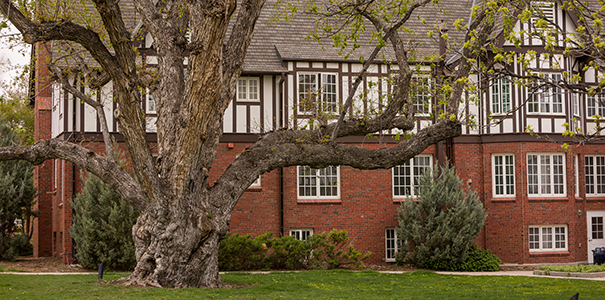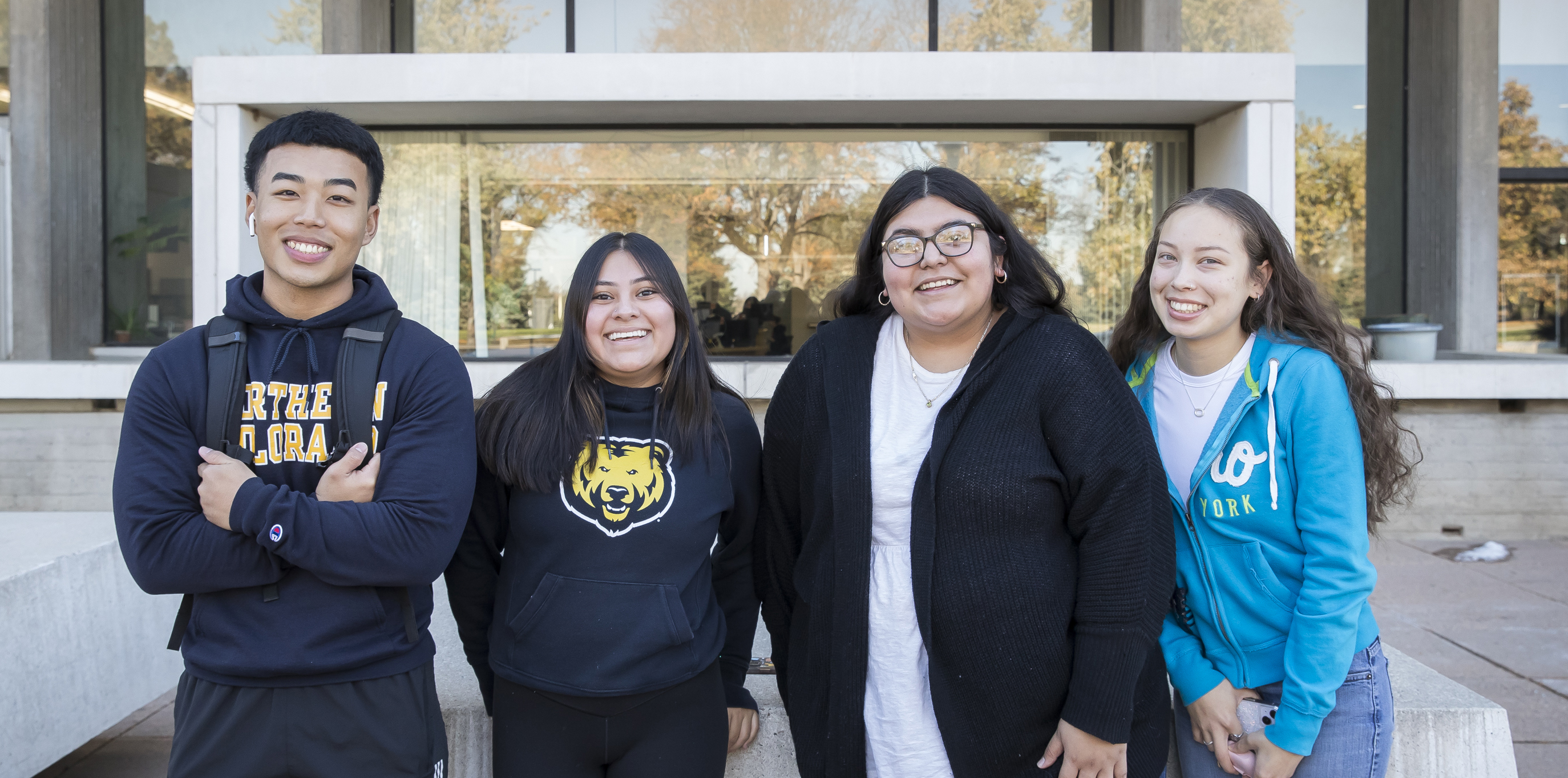
A majestic landmark on the University of Northern Colorado’s central campus, the former state champion silver maple tree that stretches across the lawn in front of what was once faculty housing, is coming down. To a tree novice, the green leaves and impressive shade canopy belie a host of concerns that have led to the tree’s recent designation as high-risk. The gentle giant, planted circa 1900 and once referred to as the champion of silver maple trees in Colorado, is scheduled for removal by the end of October.
An open cavity on the tree’s trunk, large enough to be spotted from a block away, is what drew Shiloh Hatcher, forester with the City of Greeley, to take a closer look during a citywide tree assessment in early September.
During a visit to the tree last week, two members from Hatcher's forestry team struck several areas around the trunk with a hammer, the hollow echoes confirming troubles in the base of the tree. Moving upward, Hatcher pointed out additional concerns with the branches above, including pruning cuts where large amounts of wood had already been removed, a dead limb that reaches far across a grassy area where people cross beneath, more open cavities and swollen areas on large branches in the canopy indicating what he called woundwood - a change in normal branch growth in response to a wound.
Sarah Boyd, UNC’s grounds manager, said the news wasn’t necessarily a surprise to her. Last year, the tree service that the university contracts with annually to spot hazards and concerns recommended the removal of several limbs on the tree.
“I knew the silver maple was in decline. Even the decomposition we’re seeing inside of the tree, to my eye, has significantly increased from last year,” Boyd said.
According to Hatcher, part of his job is determining when issues are fatal for a tree and when they can try and work around them.
“What we try to do is look at the tree and figure out if we can reduce weight or take other measures to mitigate risk. Removal is always the last option,” Hatcher said. “But all of these issues together have created a problem I don’t think we can prune our way around. And we have to consider that this is a campus with people walking under these trees. If this tree fails, one of the consequences is that it’s likely to hurt someone. Considering the age of the tree and the combined areas of concern, we’re doing the right thing by removing it.”
The area around the silver maple is currently roped off and Hatcher and Boyd both urged people to respect the barrier for their own safety.
Valued at over $97,000, the silver maple is the oldest and largest tree on campus, its trunk measuring over 80 inches in diameter with a canopy that at one time reached nearly 70 feet high and spanned 85 feet across. Although the tree lost its state champion status several years ago as the canopy shrunk due to reduction from dead wood, it has grown alongside the university for more than a century. There are many within the university community who would like to see this special tree get a send-off worthy of its historical stature.
While plans are still evolving, several groups on campus, including the Grounds and Landscaping department and University Advancement, as well as several student groups including the UNC Garden Club, Earth Guardians, and Student Leaf, have already begun discussing ways to preserve the tree’s history and keep parts of it on campus. To that end, Boyd has reached out to a local artist to inquire about milling the wood for special projects, including making tree cookies (cross sections of the trunk) for educational or display uses.
In addition, UNC Professor of Anthropology Mike Kimball leads a Mindfulness Affinity Group that is considering hosting an event to honor the tree before its removal, and Student Leaf is exploring fundraising opportunities to not necessarily replace the loss of the tree, but to honor its purpose by planting new trees. The university will share more details as they become available.
"I think having a conversation about a campaign to fund the replacement of our 122-year-old tree with 122 new trees is a good one," Boyd said. "It’s a lofty goal.”
More about the trees on UNC’s campus
Since 2012, UNC has been recognized as a Tree Campus USA by the Arbor Day Foundation for its commitment to tree preservation, care and community involvement. Learn more about the nearly 3,400 trees gracing our lawns and paths on UNC's guided tree tour, including the university's three other state champion trees:
- Amur Cork Tree, planted c. 1922
- Kentucky Coffee Tree, planted c. 1930
- Pecan T, planted c. 1908
— written by Deanna Herbert
More Stories
-
Governor Polis Reappoints Two to UNC’s Board of Trustees
Este artículo no está en español.
-
State Farm Invests in Career Readiness Initiatives for UNC Students
Este artículo no está en español.
-
Commentary: The Importance of Investing in First-Generation Students
Este artículo no está en español.
-
Supporting First-Generation College Students to Become Next-Generation Leaders
Este artículo no está en español.




